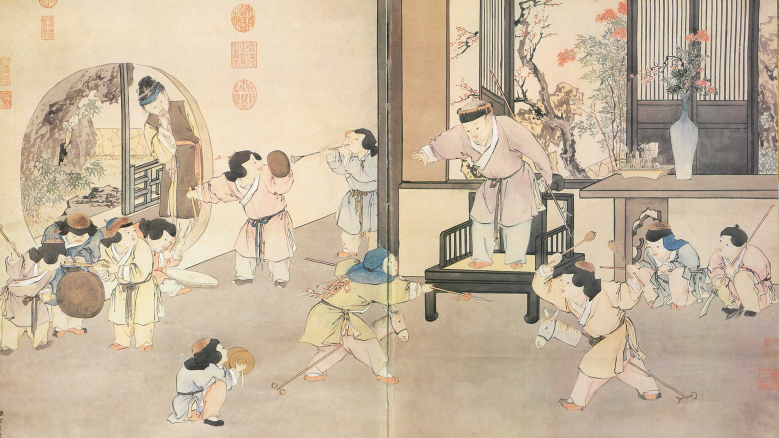China Lecture Series: Shall Children Play? Evidence from Arts in Late Imperial China

Whether children should be allowed or encouraged to play is a perennial question that looms large during the pandemic. Song China (960–1279) offers us a multifaceted representation for further reflection. While Neo-Confucian moralists stressed the importance of keeping youngsters respectful and quiet and staying away from “useless” activities, contemporary artists produced paintings of children showing girls and boys at play in all four seasons. Their hairstyles belong to toddlers at three or four and their clothing, though refined, appears to be of the cut and design one would adorn only on small children. The physical proportions of their body, the eyebrows, and eyes are typical for those of children, people would be hard-pressed to identify these portraits depicting, in the words of the French scholar Philippe Ariès, “miniature adults”.
This webinar will elaborate on the role of play in children’s lives based on evidence from the arts in late Imperial China. ISDP is delighted to welcome Professor Hsiung Ping-Chen as the speaker for this event. Professor Hsiung is the Secretary-General of CIPSH (International Council for Philosophy and Human Sciences), CIPSH Chair in New Humanities, University of California, Irvine, and Distinguished Professor in Residence and Co-Director of Global Humanities Initiatives (GHI) of Hang Seng University of Hong Kong.
The Head of ISDP’s China Center, Dr. Torbjörn Lodén, will moderate the event.